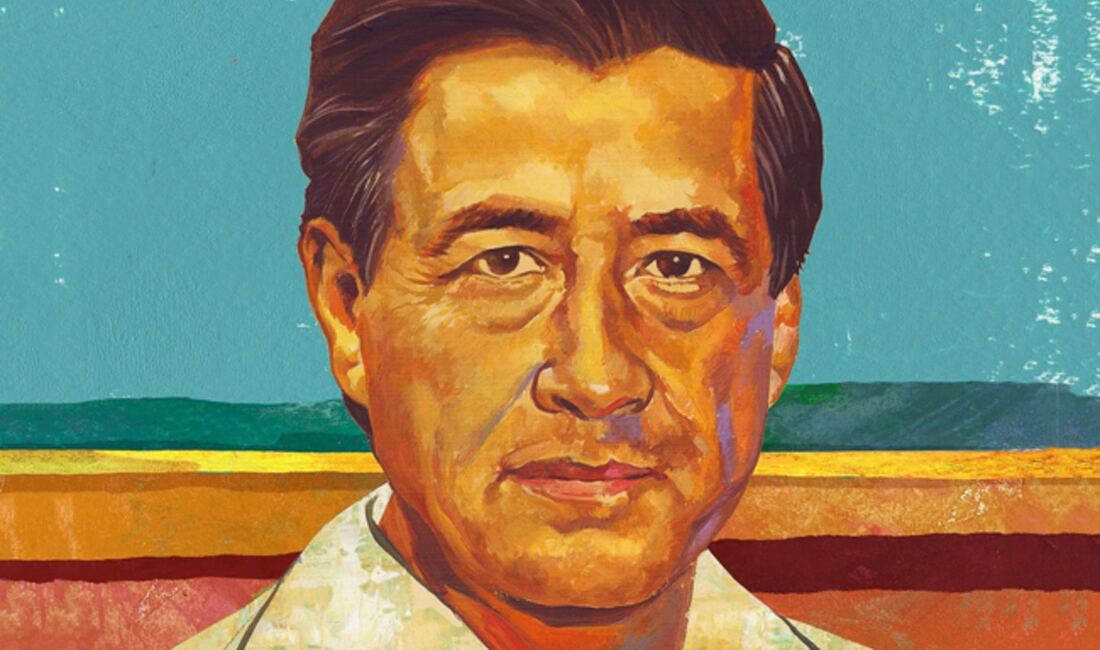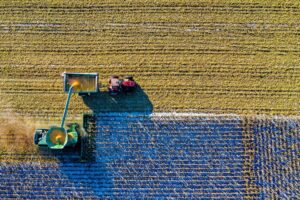
Steps to Overcoming Teenage Anger
We are honoring the legacy of Cesar Chavez at Urban Health Group.
But first, let me tell you why I care…
My Papa Yoi’s birthday is in August and celebrating his birthday is a major event in our family. This last year he made 95 years on this Earth! I wish I had more time to talk about my grandfather, Salvador Vaca- myth, man, legend of El Camiche-Michoacan, Mexico. Every August, family members travel from all around California to the Central Valley, Guadalupe to celebrate him. The car ride is about 3-4 hours from the Bay Area. During these car rides I get to learn a lot about my father’s childhood. On the long stretch of the road through California’s most productive agricultural region and one of the most productive in the world, providing more than half of the fruits, vegetables, and nuts grown in the United States–I learn.
The road is housed between the Pacific Ocean and the mountains. In the morning, the road is covered in thick, coastal fog; and later in the day, the clouds burn off and you see the hyper- illuminated fields, mountains and sky in luscious green, blue and brown colors. I love looking out of the window, seeing the perfectly lined rows of fruits and veggies. I’m amazed by the uniformity of each row. Out of the window I see a small plane coasting over the fields dropping water below. Seemingly in our individual, calming trance of the car ride, my dad breaks his silence. “ I’m surprised none of you were born with a third arm or something,” he chuckles. “ As a kid we used to run under those planes on hot days…hoping to get cooled down…you know its’s pesticides they are dropping from those planes.” It was not water but chemicals dropping from that plane.

My father, siblings, and parents worked as farm laborers when they first immigrated to the U.S.. My grandfather initially came to the U.S. under the Bracero Program and later was able to get citizenship for most of my family members. The Bracero Program grew out of a series of bi-lateral agreements between Mexico and the United States that allowed millions of Mexican men to come to the United States to work on, short-term, primarily agricultural labor contracts. The Bracero Program was created by executive order in 1942 because many growers argued that World War II would bring labor shortages to low-paying agricultural jobs.
My father actually never really talks about that period of time, but he remembers the Delano Boycotts. He recalls his family of 10 being cramped living in a trailer and being very hungry during those boycotts. Without more details, he states “ I remember them passing out peanut butter and jelly sandwiches.”
I’ve never heard my family complain about their experiences as farmer laborers, never really hear them talk much about those days. Maybe for obvious reasons, it was hard. What sticks out to me are the “poison planes” dropping pesticides over the workers (including children…my eight year old dad), my family living in cramped quarters and peanut butter jelly sandwiches.
When I hear the likes of Cesar Chavez, I think of my family. My family was in Delano during the Table Grape Strike, working the fields.
It is quite easy to turn a blind eye to circumstances that are unfamiliar to your own experiences, especially learning about undesirable information like the conditions of essential workers.

Who is Cesar Chavez?
The Mexican-American labor leader and civil rights activist, Cesar Chavez, dedicated his life’s work to what he called la causa (the cause): the struggle of farm workers in the United States to improve their working and living conditions through organizing and negotiating contracts with their employers.
In 1960, table grapes–yes the beautiful purple, delicious fruit that is easy to pop in your mouth grabbed national attention for alarming reasons. Caesar Chavez joined Larry Itliong, a Filipino-American organizer, who led a group of Filipino-American grape workers to first strike in September 1965.The farm workers of Central California’s San Joaquin Valley largely comprised two groups: Mexican-Americans and Filipino-Americans. In 1970, after five years of the so-called Delano grape strike, farm workers won a contract promising better pay and benefits.
Fast Facts:
- He was born in Yuma, Arizona on March 31, 1927.
- In the late 1930s, he and his family joined more than 300,000 people who moved to California during the Great Depression and became migrant farm workers.
- Chavez dropped out of school after eighth grade and began working in the fields full time.
- In 1946, he joined the U.S. Navy, serving for two years in a segregated unit.
- In 1952, Chavez was working at a lumberyard in San Jose when he became a grassroots organizer for the Community Service Organization (CSO), a Latino civil rights group.
- He was inspired by the nonviolent civil disobedience pioneered by Gandhi and Dr. Martin Luther King Jr.
- Over the next decade, he worked to register new voters and fight racial and economic discrimination, and rose to become the CSO’s national director. Chavez resigned from the CSO in 1962, after other members refused to support his efforts to form a labor union for farm workers. That same year, he used his life savings to found the National Farm Workers Association (NFWA) in Delano, California.
- Chavez died in his sleep on April 23, 1993, at the age of 66
- Barack Obama borrowed a Chavez slogan—Si, se puede, or “Yes, we can”—during his successful run to become the first Black U.S. president in 2008.

During COVID, we have learned that there are specific industries that are considered “essential” for daily living. These essential workers are also at greatest risk for contracting the virus. Some of you are also learning about the hardships around working conditions, access to healthcare among other things that existed before COVID, and has been made worse during COVID.
The healthcare heroes are the easiest to champion around, make flyers and send well wishes to.
The invisible heroes are the low income workers: the caretakers, nannies, restaurant workers, day laborers and construction workers.
Cesar Chavez was a champion for essential workers before it was cool, before there were hashtags, and memes to show support. He coordinated a national effort that lasted five years, and even marched from Delano to Sacramento, CA for better living and health conditions essential workers.
The needs of essential workers are longstanding and ongoing. We all have a chance to evolve our performative display of solidary into action.
1. Donate
Look up causes already in place to support sustaining their effortsHere is where I have donated: https://www.instagram.com/directactionforfarmworkers/?hl=en2. Volunteer
Look up efforts to protect agriculture workers from COVID-19.
https://www.farmworkerjustice.org/soy_indispensable/
Here is where I am volunteering my services for medical advocacy in Oakland, CA.
COALITION OF CONCERNED MEDICAL PROFESSIONALS (CCMP) is an all-volunteer effort, rooted in the community, founded in the Bay Area in 1976. CCMP is independent from government funding or any funding with strings attached. CCMP is structured as a free and voluntary unincorporated private membership association – not as a 501(c)(3). CCMP’s primary purpose is to overcome political and economic barriers that deny access to comprehensive medical care for any and all working people. This has included conducting campaigns to defeat laws or governmental policies detrimental to the interests of low-income workers.
https://www.ccmpbayarea.com/
“Presidential Proclamation – Cesar Chavez Day”. whitehouse.gov. Retrieved March 30, 2016 – via National Archives.
http://braceroarchive.org/about
https://www.history.com/topics/mexico/cesar-chavez
https://www.texasobserver.org/death-from-above/

